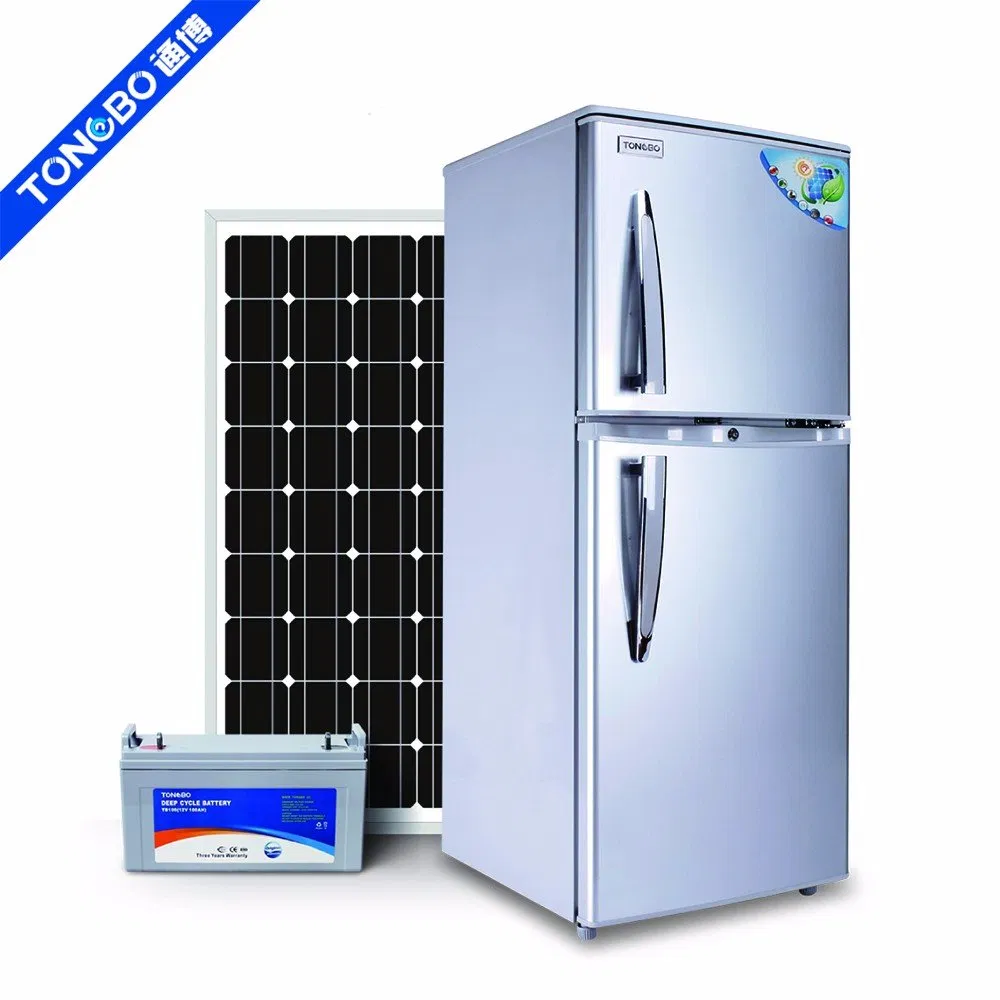Opening the Potential: How Solar Refrigerator Can Change Your Power Intake
The development of solar refrigerators presents a compelling chance to improve our approach to energy consumption. By properly making use of eco-friendly solar power, these systems promise not just to lower dependence on traditional power sources however likewise to boost food conservation and security, especially in underserved regions. As we discover the details of exactly how solar refrigerators operate and their broad-ranging advantages, it becomes apparent that their combination into day-to-day life might lead to significant improvements in sustainability. What stays to be checked out are the functional effects and choices customers should think about in this developing landscape.
Just How Solar Refrigerators Work
Solar fridges operate by utilizing solar energy to power their cooling mechanisms, efficiently utilizing sustainable sources to preserve reduced temperatures. These systems normally include photovoltaic or pv (PV) panels that convert sunshine right into electrical energy. This electrical power is after that utilized to run the compressor, fan, and other elements crucial for refrigeration.
The key mechanism in a solar fridge is the vapor-compression cycle, similar to standard fridges. In the evaporator, the cooling agent absorbs warm from the interior of the fridge, thus lowering its temperature level.
Solar refrigerators may additionally incorporate battery storage systems, enabling them to run during non-sunny hours or in gloomy conditions. This guarantees a continuous cooling effect, making them appropriate for numerous applications, specifically in remote locations lacking accessibility to dependable electricity. By integrating solar technology, these fridges add to power efficiency and sustainability in food storage and preservation.
Secret Advantages of Solar Refrigeration
The combination of solar technology into refrigeration systems supplies numerous benefits that prolong past mere power cost savings. One of one of the most considerable benefits is the decrease of carbon impact. By taking advantage of sustainable solar power, these systems lessen reliance on nonrenewable fuel sources, adding to an extra lasting atmosphere. This change is specifically vital in regions where electrical power supply is undependable or non-existent, enabling neighborhoods to maintain food conservation and security.

Moreover, the usage of solar energy can result in energy independence, allowing customers to generate their very own power and lower susceptability to varying energy costs. In general, the adoption of solar refrigeration provides a complex option that not just addresses energy usage yet likewise advertises ecological sustainability and enhances food conservation capacities in underserved neighborhoods.
Energy Cost Savings and Effectiveness
With the increasing expenses of power and increasing awareness of environmental concerns, energy cost savings and performance have come to be crucial factors to consider in refrigeration innovation (solar refrigerator). Solar fridges leverage renewable power sources, significantly minimizing reliance on conventional electrical energy grids. By using solar energy, these systems lessen power intake, making them an economically viable alternative for both domestic and business applications
The design of solar refrigerators integrates advanced insulation products and energy-efficient compressors, which guarantee optimal performance while making use of minimal power. Many solar refrigerator designs additionally feature programmable setups and wise technology that enable users to check and take care of power usage successfully. This smart design causes reduced electrical power bills and lower functional costs in time.
In addition, solar fridges are furnished with batteries that save excess energy produced throughout sunny days, allowing continual procedure even during durations of low sunshine. This capacity enhances their efficiency, ensuring that food and disposable items are consistently maintained safe temperatures.
Ecological Effect and Sustainability
Using renewable resource not just improves power financial savings yet likewise substantially adds to environmental sustainability. solar refrigerator. Solar refrigerators operate clean, renewable resource resources, lowering dependence on nonrenewable fuel sources that contribute to greenhouse gas discharges. This change in energy usage reduces climate change impacts and promotes a healthier world

Additionally, solar fridges are especially valuable in remote locations where power accessibility is restricted or non-existent. By giving a viable refrigeration solution without the demand for comprehensive facilities, they promote sustainable development in underserved areas. company website This accessibility not only improves food safety however also lowers food wasting, therefore reducing waste.
Selecting the Right Solar Refrigerator
Picking the perfect solar refrigerator requires mindful factor to consider of different variables to guarantee ideal performance and effectiveness. First, examine the energy requires based upon your consumption patterns. Calculate the overall power level needed to maintain your things cool down, which aids in picking a like this device with a suitable photovoltaic panel size to fulfill these needs.

Another critical element is the kind of solar fridge-- compressor or absorption. Compressor models are typically much more efficient and better matched for settings with varying temperature levels, while absorption fridges might be more effective for off-grid applications because of their simplicity.
Lastly, guarantee the device has reputable solar parts, including panels, batteries, and a fee controller, to guarantee long-lasting functionality. By meticulously considering these elements, you can choose a solar refrigerator that aligns with your power objectives and adds to sustainable living.
Final Thought
In summary, solar refrigerators stand for a considerable improvement in power intake, supplying a sustainable alternative to typical refrigeration approaches. By utilizing solar energy, these systems not only minimize reliance on nonrenewable fuel sources however likewise enhance food security and decrease environmental impact. The combination of advanced technologies ensures efficiency and cost-effectiveness, learn this here now advertising power independence. As the adoption of solar refrigeration increases, a transformative change towards cleaner energy practices and decreased food waste is prepared for, adding positively to international sustainability initiatives.